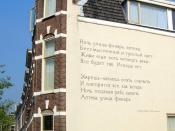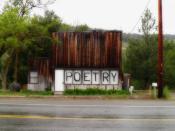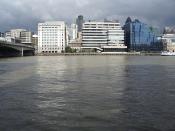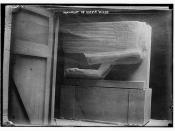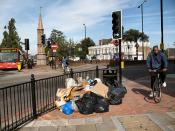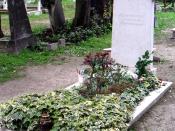The poem by Joseph Brodsky "The Monument" has a primary theme about the statues, being an example of the cultural criticism in the time of the communist government in Russia. This poem contains many ironies, and imagery that shows the illustration of his monument and reason of its existence. These lead you to believe he is criticizing the corrupt government.
The irony in this poem is very visual. He tells us through out the entire poem how people would visit the monument, and it is a great symbol to have such great monument. At the end of the poem he says, "Let us set up a monument to the lie"ÃÂ. This tells us that every thing he said well about the monument is true, but the believe is not coming from the heart. It is being forced upon them by the political supremacy. During the time he wrote the poem the Russian government was Communist and this monument describe the communist form of policy.
They give you all nice materials, and show you great deeds, but its all a lie.
The imagery in this poem is also very visual. The monument he does not talk about much, but he describes the neighboring of it, and the people's reaction to it. He says, "foreigners will have their picture taken"ÃÂ, which tells us its going to be a monument of someone very famous. This person could be a "general, a composer, or a well known thinker"ÃÂ. He also shows us this images of some popular hero figure person, but never touches on the specific person who the monument will be built after. He is trying to get across us a point about the government, and that this monument should be built after the person who eliminate the Communist party.
The imagery and the irony basically make up the entire theme of the poem, regarding the criticizing of the Russian government. This poem shows how a monument can mean a lot to a nation, and symbolize great people, but it can be used as political instrument. The monument in this poem is a puppeteer for the Russian communist government, and the people are the puppets.
